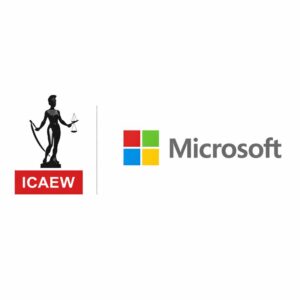5 Effective Ways to Prepare Future Accountants for a Tech-Driven Career
Insights from a UK accountant on the future of accounting, highlighting technology, AI, and skill development for aspiring professionals.

The accounting industry in the United Kingdom is evolving rapidly. Cloud accounting software, automation, and artificial intelligence are transforming the field. The skills needed for a successful career in accounting are changing. At the same time, many accounting students are graduating without the practical knowledge required in the workplace.
As a chartered accountant and co-director of a family-run accounting firm, I have seen firsthand how digital tools and innovation can transform the way a firm operates. There is a real opportunity for the next generation of accountants to embrace change and shape the future of the profession.
In this article, I share five practical ways to bridge the gap between education and employment. These approaches can help future accountants in the UK build successful and rewarding careers.
1. Close the Gap Between Accounting Education and Real-World Skills
Many accounting graduates leave university with strong theoretical foundations in subjects like financial reporting and audit. However, few have hands-on experience with real-world accounting software or practical workflows.
Familiarity with cloud-based accounting software such as Xero, Sage and QuickBooks Online is now essential in most accounting jobs. Tools like these are used daily in small practices and large firms alike.
Universities, colleges, and professional training providers should introduce students to common software platforms. They should also give students opportunities to gain practical experience. Offering structured training on tax software would enhance graduates’ employability. Training in payroll systems and digital filing tools would also boost their confidence when entering the profession.
2. Embrace Artificial Intelligence and Automation in Accounting
One of the most common concerns among students is whether artificial intelligence will replace traditional accounting jobs. In reality, automation is changing the way accountants work, but it is not replacing the profession.
Software can now handle tasks like bank reconciliations, expense categorisation and invoice processing. This gives accountants more time to focus on strategic and advisory work. They can engage in cash flow forecasting, budgeting, and financial planning.
To thrive in the digital era, future accountants must develop both technical and soft skills. Understanding how to use AI-powered tools is important. Equally important are the abilities to communicate clearly, to analyse data, and to build strong client relationships.
3. Find the Right Balance Between Career Growth and Work-Life Balance
Many new accountants begin their careers in large international firms, attracted by structured training and high-profile clients. This can be an excellent starting point. However, the work is often specialised and demanding. There are long hours during peak periods.
When I joined our family-owned firm, I focused on creating a work culture that balanced growth with wellbeing. For example, we cap hours during busy seasons and operate a four-day week in the summer. We also offer flexible working hours and prioritise regular time off to recharge.
For accounting students and graduates, it is important to look beyond starting salaries. Research the firm’s culture, speak to recent hires, and ask about career progression, wellbeing policies and flexibility.
4. Help Modernise Accounting Firms and Support UK Small Businesses
Graduates with strong digital skills have a unique opportunity. They can support small accounting firms and small businesses across the UK. Many smaller practices have not yet adopted modern tools, creating opportunities for new employees to lead digital transformation.
At our firm, we use tools like SmartVault for secure document sharing and Dext for streamlined expense management. These technologies have helped us improve client service, save time, and shift our focus to high-value advisory services.
Modernising an accounting firm takes time and effort. It may involve overcoming resistance from senior partners or long-term clients. However, the long-term benefits—such as increased efficiency, better client communication and scalable growth—are well worth the investment.
5. Choose the Right Type of Accounting Firm for Your Career Goals
There are many different types of accounting firms in the UK, and each offers a different experience. Large firms provide structured training, brand recognition and the chance to work with global clients. However, the roles can be narrowly focused, and some employees feel like just another number.
In contrast, working in a small or medium-sized accounting practice often means gaining exposure to the full accounting cycle. Graduates may be involved in bookkeeping, year-end accounts, tax returns, and client meetings within their first year. You are more likely to see the direct impact of your work and build closer relationships with clients and colleagues.
To make an informed decision, speak with people working in both large and small firms. Think about what is most important to you. It may be professional development, job variety, a healthy work-life balance, or close client engagement.
Key Skills for a Successful Career in Accounting
The UK accounting profession is full of opportunity, especially for those who are proactive and adaptable. Whether you want to work in audit, tax, financial reporting or business advisory, the following skills will help you succeed:
- Critical thinking: Go beyond the numbers and try to understand the reasons behind the process. Ask questions and seek out better ways of working.
- Digital confidence: Stay up to date with accounting software, automation tools, and cloud platforms. Attend online webinars, accounting exhibitions like Accountex, or local training events.
- Relationship building: Clients value trust, empathy and communication. Technology is powerful, but people do business with people.
Building a Future-Proof Career in UK Accounting
The accounting profession in the United Kingdom is undergoing one of the most exciting transformations in decades. Technology is opening new doors, but it is people—accountants with curiosity, integrity, and adaptability who will shape what comes next.
You might choose to work in a Big Four firm. Alternatively, you could join a regional practice or eventually start your own business. In any case, the path to success is not just about ticking boxes. It is no longer merely about passing exams. It is about thinking critically, learning continuously, and delivering real value to clients and communities.
The most successful accountants of the future will be those who embrace change, master digital tools, and build genuine relationships. They will not just keep businesses compliant—they will help them grow, adapt and thrive in a rapidly changing world.
For students and graduates stepping into the profession, now is the time to be bold. Stay curious and explore every opportunity. The future of accounting is not only bright—it is yours to shape.





